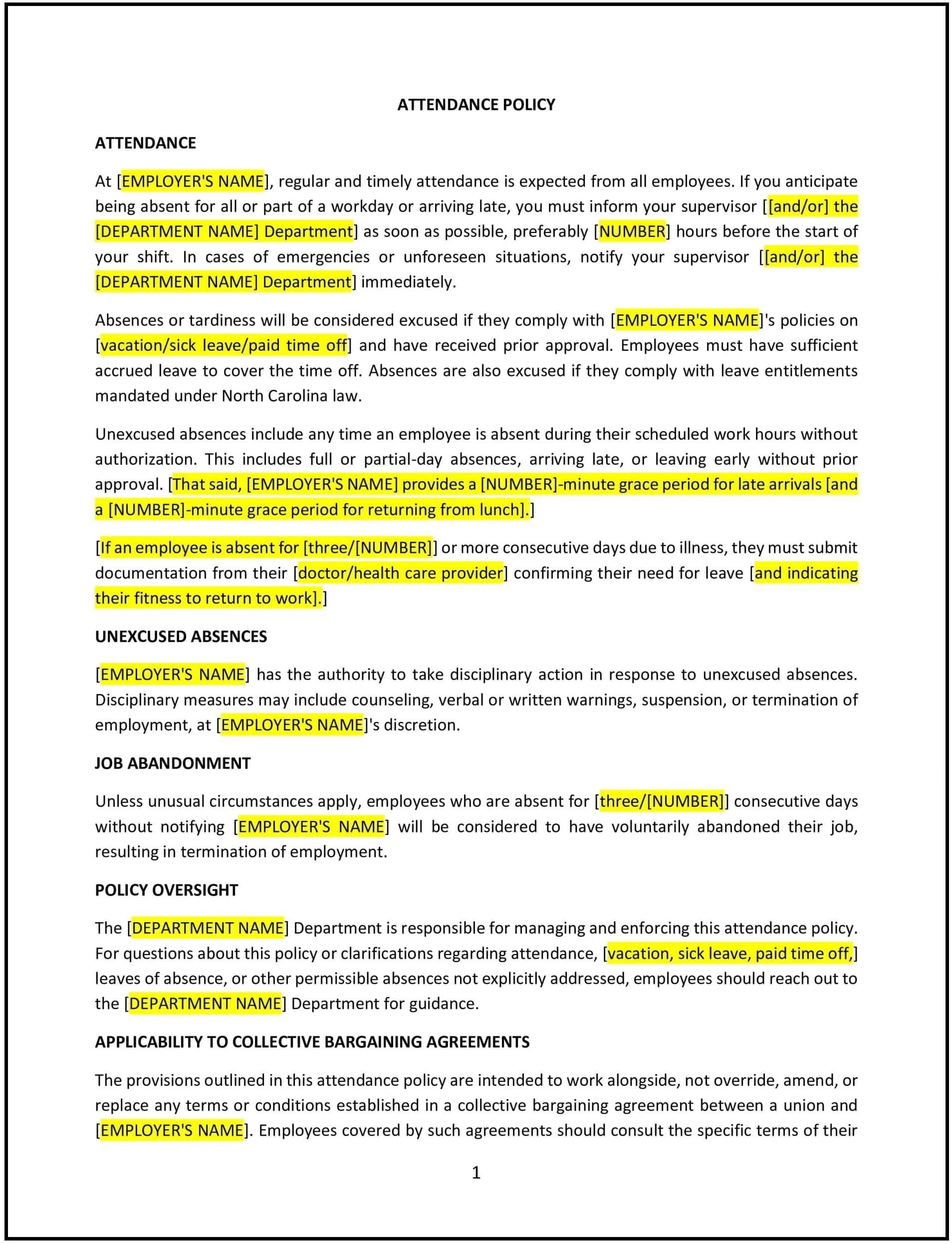Got contracts to review? While you're here for policies, let Cobrief make contract review effortless—start your free review now.

Customize this template for free
Attendance policy (North Carolina)
An attendance policy helps North Carolina businesses set clear expectations for employee attendance, punctuality, and absences. This policy outlines the procedures for reporting absences, the consequences of excessive absenteeism, and how the business will address tardiness, early departures, or unreported absences. It also provides guidelines for requesting time off, including the documentation required for sick leave or personal days.
By implementing this policy, businesses in North Carolina can maintain smooth operations, ensure that employees are meeting expectations, and create a fair process for handling attendance-related issues.
How to use this attendance policy (North Carolina)
- Define expectations: Clearly outline what constitutes acceptable attendance, including regular working hours, punctuality, and expectations for reporting absences.
- Set guidelines for reporting absences: Specify how employees should report absences, including who to contact, how far in advance, and the required format (e.g., phone call, email, or online form).
- Specify consequences for excessive absenteeism: Identify the steps the company will take if employees exceed acceptable absenteeism levels, such as counseling, written warnings, or disciplinary action.
- Address different types of leave: Outline the policies for sick leave, personal leave, vacation, and other forms of time off. Clarify how much notice is needed for each type of leave and the documentation required.
- Reflect North Carolina-specific considerations: Ensure that the policy aligns with North Carolina’s labor laws, including any specific regulations related to leave entitlements, paid sick leave, or family and medical leave.
Benefits of using this attendance policy (North Carolina)
This policy provides several benefits for North Carolina businesses:
- Reduces disruptions: Clear attendance expectations help minimize disruptions caused by employee absenteeism, ensuring that the business can continue operations smoothly.
- Promotes fairness: A transparent attendance policy ensures that all employees are held to the same standards, helping to avoid complaints about favoritism or unequal treatment.
- Supports employee well-being: The policy provides employees with clear guidelines for requesting time off while balancing business needs and personal responsibilities.
- Increases productivity: When employees are aware of attendance expectations, they are more likely to maintain punctuality and regular attendance, contributing to higher productivity.
- Enhances legal protection: By following state laws and maintaining clear documentation, businesses can mitigate the risk of potential legal issues related to absenteeism or leave claims.
Tips for using this attendance policy (North Carolina)
- Communicate the policy clearly: Ensure that employees are aware of the attendance expectations and procedures by including the policy in the employee handbook and reviewing it during onboarding.
- Track attendance regularly: Keep accurate records of employee attendance to identify trends and address any issues promptly.
- Be flexible with emergency situations: While the policy sets guidelines, be understanding of emergencies or unforeseen circumstances that may affect an employee’s ability to attend work.
- Review the policy periodically: Regularly review the policy to ensure it remains aligned with North Carolina’s laws and the company’s operational needs.